The popularity of dragon fruit has grown rapidly worldwide, and the same is true for India. However, in the rush to cultivate dragon fruit, many farmers face challenges. They start growing dragon fruit plants hurriedly, only to encounter various problems like dragon fruit plants not growing and, ultimately, no fruits during the fruiting season. This article will explore these issues in detail, providing new farmers with insights on how to avoid these common mistakes, ensuring they can benefit from dragon fruit cultivation and make a good profit.
Dragon fruit plants not growing-How Dragon Fruit Grows
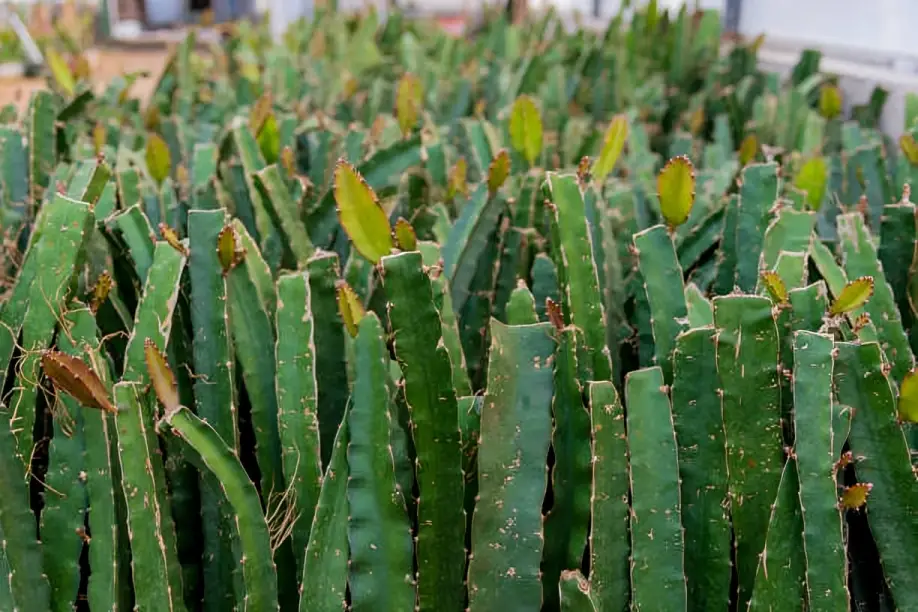
Growing dragon fruit is different from other types of gardening. It requires the right balance of soil nutrients, moisture, sunlight, and shade for optimal growth. Any imbalance in these factors can interfere with the growth of the fruit. There are five major reasons why dragon fruit plants fail to grow properly:
- Choosing the Wrong Variety
Dragon fruit has more than 150 varieties worldwide. For commercial farming, it is critical to test different varieties in your field. Testing will help you understand which variety grows best in your region and soil. What works well in one farmer’s field may not work the same for you. Testing a few varieties in the first year will allow you to understand the challenges each variety presents and determine which is most suitable for your location. - Root Development Problems
Dragon fruit plants have a unique root structure compared to other plants. Their roots are limited in how far they can grow, so it’s crucial to focus on soil health and provide proper nutrients to encourage root growth. If the roots do not develop properly, the plants will not grow well because roots are essential for nutrient uptake. Let’s explore the reasons behind poor root development and how to address them. - Nutrient and Fertilization Deficiencies
For dragon fruit to grow properly and produce a good yield, proper nutrition is vital. If the plants do not receive the right amount of fertilizers and nutrients, their growth will stop, leaves will turn yellow, and the plants will shrink. Let’s dive into the right fertilizers and how to use them for the best results. - Incorrect Watering Practices
The right amount of water is essential for dragon fruit plants. Incorrect watering practices, either overwatering or underwatering, can severely affect plant growth. Let’s look at how wrong watering can cause problems and how to implement the right watering techniques to improve plant growth.
Choosing the Right Variety of Dragon Fruit
Why Choosing the Right Variety is Crucial for Dragon Fruit Growth
Dragon fruit farming is an expensive endeavor. Therefore, when planting on a large scale, it is important to choose the right varieties carefully to avoid losses. The correct variety influences the plant’s growth rate, its resistance to diseases, and the yield. Let’s look at some crucial points to consider when selecting the right variety for dragon fruit:
- Climate Compatibility: There are different varieties of dragon fruit that perform better in different climates and soil conditions. It’s essential to test varieties that match your soil type and local weather conditions. Don’t assume that a variety that works well for others will work in your field.
- High-Yield Varieties: Some varieties yield more fruit and are more resistant to diseases, allowing for better productivity at lower costs. Look for high-yielding varieties that are also resistant to common pests and diseases in your area.
- Choose Certified Plants: Always buy plants from certified nurseries or trusted farmers to ensure you get mature and authentic plants. This reduces the chances of purchasing unhealthy or poorly developed plants.
- Red, White, or Yellow Dragon Fruit?: Red and yellow varieties tend to be sweeter, while white-fleshed varieties have a milder, tangy flavor. Choose according to market demand in your area.
- Hybrid or Traditional Varieties?: Hybrid varieties often grow faster and yield more fruit, but traditional varieties tend to have a longer lifespan. Choose based on the trade-offs that best suit your farming needs.
Root Development Issues and How to Fix Them
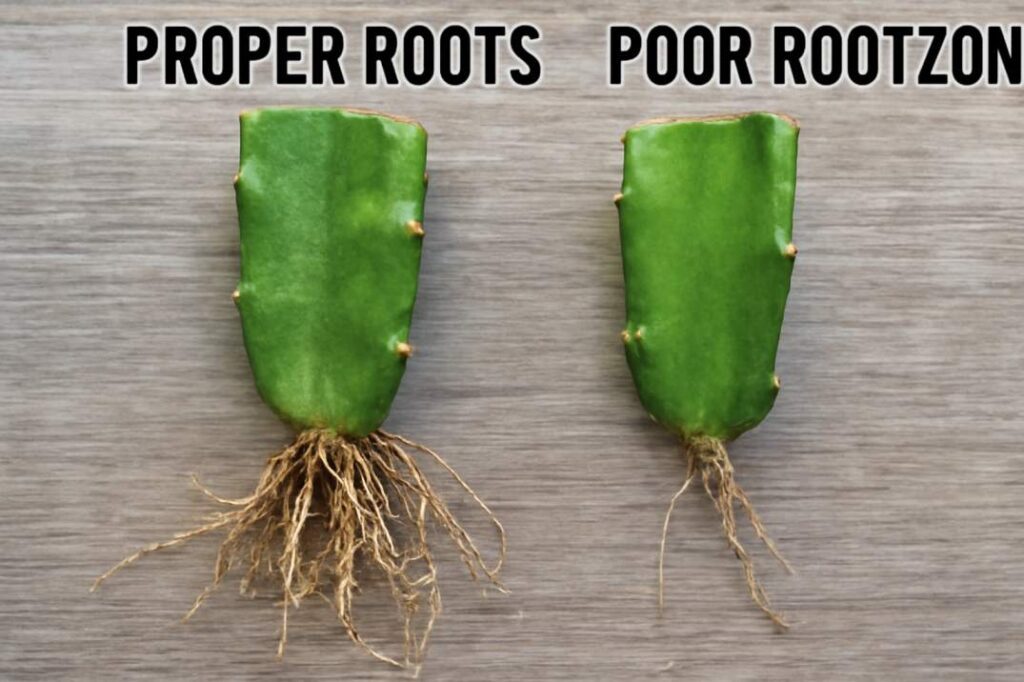
The Importance of Healthy Roots for Dragon Fruit Growth
dragon fruit plant grow require healthy roots for the effective absorption of nutrients. If the roots are not developing properly, dragon fruit plants not growing will not grow well. Let’s explore some common causes of poor root development and how to address them:
Common Causes of Poor Root Development:
- Wrong Soil Choice: If the soil is too compact or retains water, roots cannot develop properly. Dragon fruit plants require well-drained soil.
- Poor Drainage System: If there is too much water in the soil, roots can rot, causing plants to weaken and fail to grow.
- Deep Planting: Dragon fruit plants should be planted near the surface of the soil. Deep planting can restrict root growth.
- Pest Infestation: Pests like nematodes can damage the roots, affecting the overall health of the plant.
How to Improve Root Growth:
- Use Organic Matter: Mix organic matter such as vermicompost, coco peat, and sand into the soil to improve drainage and root health.
- Avoid Overwatering: Water the plants only when needed. Ensure that the soil has proper drainage to avoid root rot.
- Shallow Planting: Avoid planting the plants too deep. Keep the roots near the soil surface to ensure good root spread.
- Use Root Stimulants: Organic tonics such as humic acid and seaweed extracts can stimulate root growth and enhance plant health.
- Prevent Pests: Use appropriate treatments such as fungicides for the soil and neem cake to control nematodes.
If dragon fruit plants not growing by ensuring proper root development, dragon fruit plants will grow faster and become healthier and more productive.
Nutrient Deficiency and Fertilization

Why Fertilization is Critical for Dragon Fruit Plants
For dragon fruit plant grow to thrive, they need adequate nutrition at every stage of their growth. If they lack nutrients, the plants will not grow well and may not produce fruit. Let’s discuss how to provide the proper nutrients and fertilizers to ensure the plants remain healthy and productive.
How to Use Fertilizers Correctly:
- Balanced NPK Fertilizers: Use nitrogen, phosphorus, and potassium (NPK) fertilizers to promote healthy growth. For young plants, use NPK 19:19:19, which provides balanced nutrients. During the flowering and fruiting phase, switch to fertilizers like NPK 10:26:26 or 12:32:16, which contain more phosphorus and potassium for better fruit production.
- Organic Fertilizers: Use organic fertilizers such as compost, cow manure, and neem cake to improve soil health and provide additional nutrients.
- Humic Acid and Seaweed Extracts: Humic acid helps strengthen the roots, while seaweed extract boosts flower and fruit growth.
- Calcium and Magnesium: To strengthen the plants, use gypsum or dolomitic lime to provide calcium and magnesium.
- Foliar Sprays: Spraying micronutrients like zinc, iron, and boron on the leaves can enhance plant health and growth.
Watering Issues and How to Fix Them
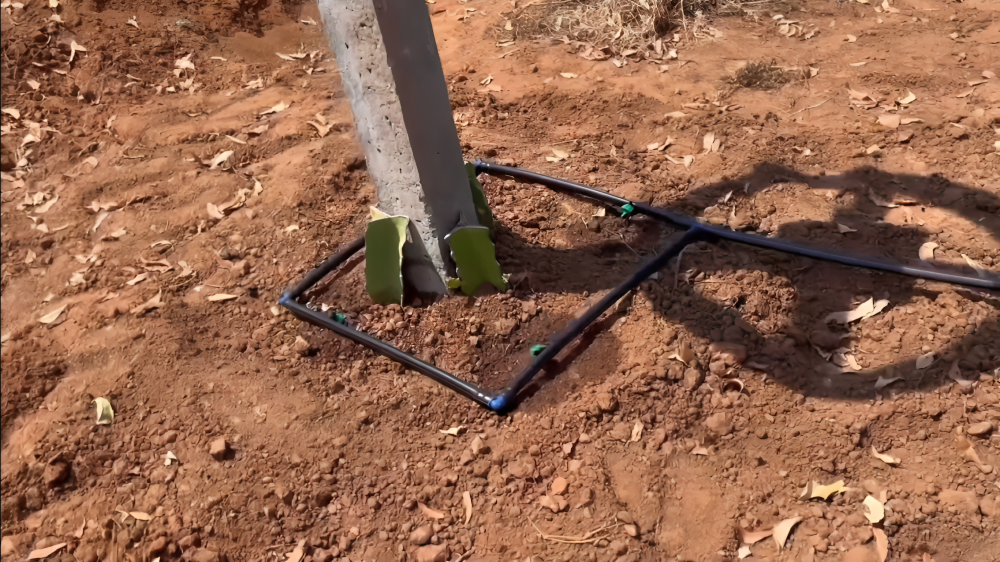
The Right Way to Water Dragon Fruit Plants
Watering is one of the most crucial aspects of dragon fruit farming. Overwatering or underwatering can damage the plants and stunt their growth. Let’s look at how incorrect watering practices affect plant growth and how to implement proper watering methods.
Problems Caused by Incorrect Watering:
- Root Rot: Overwatering leads to waterlogging, causing roots to rot, which can severely damage the plant.
- Yellowing Leaves: Lack of water causes the leaves to turn yellow, leading to weak and unhealthy plants.
- Increased Risk of Disease: Excessive moisture can lead to fungal infections, making the plants susceptible to diseases.
- Slow Growth: If the plant does not receive the right amount of water, its growth will be slow, and it may not produce fruit.
Proper Watering Methods:
- Drip Irrigation: This is the most effective method of watering dragon fruit plants, as it ensures that the right amount of water reaches the roots without overwatering the plant.
- Adjust Watering for Seasons: In summer, water the plants every 5-6 days. In winter, water them once every 8 days.
- Water in the Morning or Evening: Avoid watering during the hottest part of the day, as this leads to rapid evaporation.
- Check Soil Moisture: Before watering, always check if the soil has sufficient moisture. This will help avoid overwatering.
- Mulching: Applying mulch around the plants helps retain moisture in the soil and promotes healthy growth.
Conclusion: Testing and Patience Are Key
dragon fruit plant growth requires patience and understanding. If your plants are not growing well, you need to evaluate the factors such as the variety of plant, root development, fertilization, and watering practices. Testing different varieties in your field will provide valuable insights into what works best for your soil and climate. Over time, with careful attention and adjustments, your dragon fruit plants will thrive, and you will reap the rewards of this profitable farming venture.
FAQs
- Why are my dragon fruit plants not growing well?
- Poor root development, incorrect variety, nutrient deficiencies, or improper watering can cause poor growth.
- How can I choose the best variety of dragon fruit for my farm?
- Test different varieties in your field and observe their growth patterns, resistance to pests, and overall health.
- How often should I water my dragon fruit plants?
- Water them every 5-6 days in the summer and once every 8 days in the winter.
- What are the signs that my dragon fruit plant needs more nutrients?
- Yellowing leaves, stunted growth, and poor flowering or fruiting are signs that the plant needs more nutrients.
- What is the best irrigation method for dragon fruit?
- Drip irrigation is the best method, as it provides the right amount of water directly to the roots.
if you have any question regarding the same comment down below.
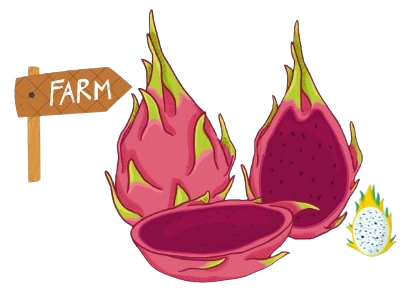
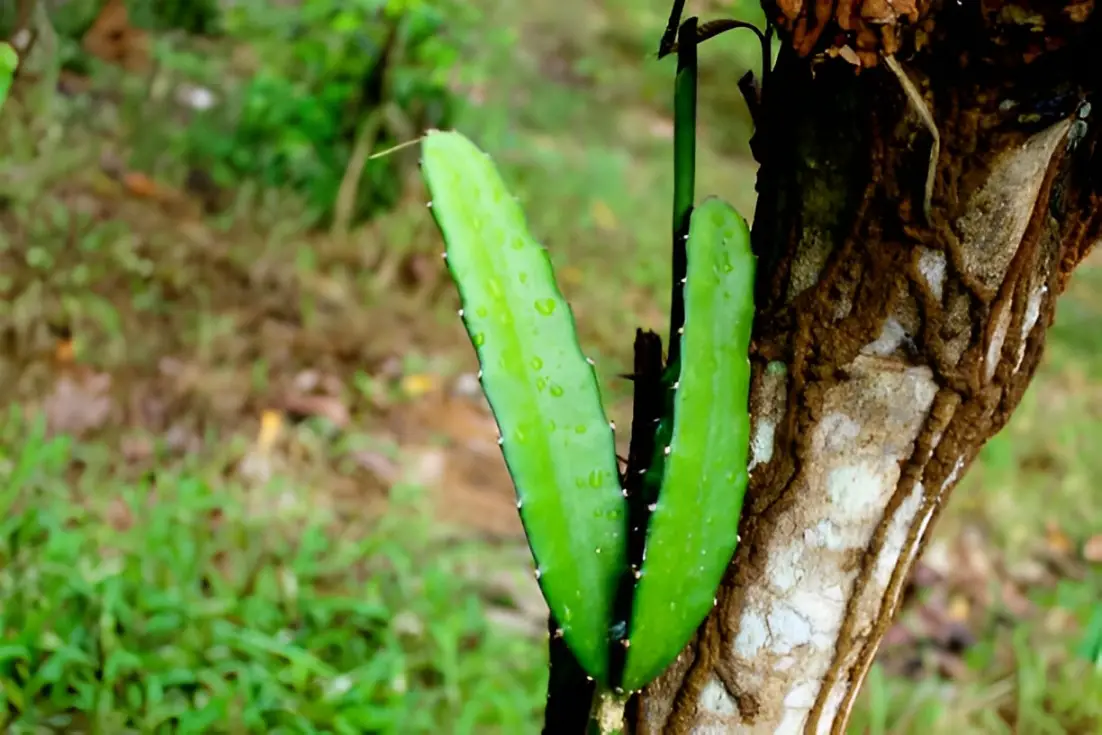
2 thoughts on “My Dragon Fruit Plants Not Growing: 4 Proven Mistakes”